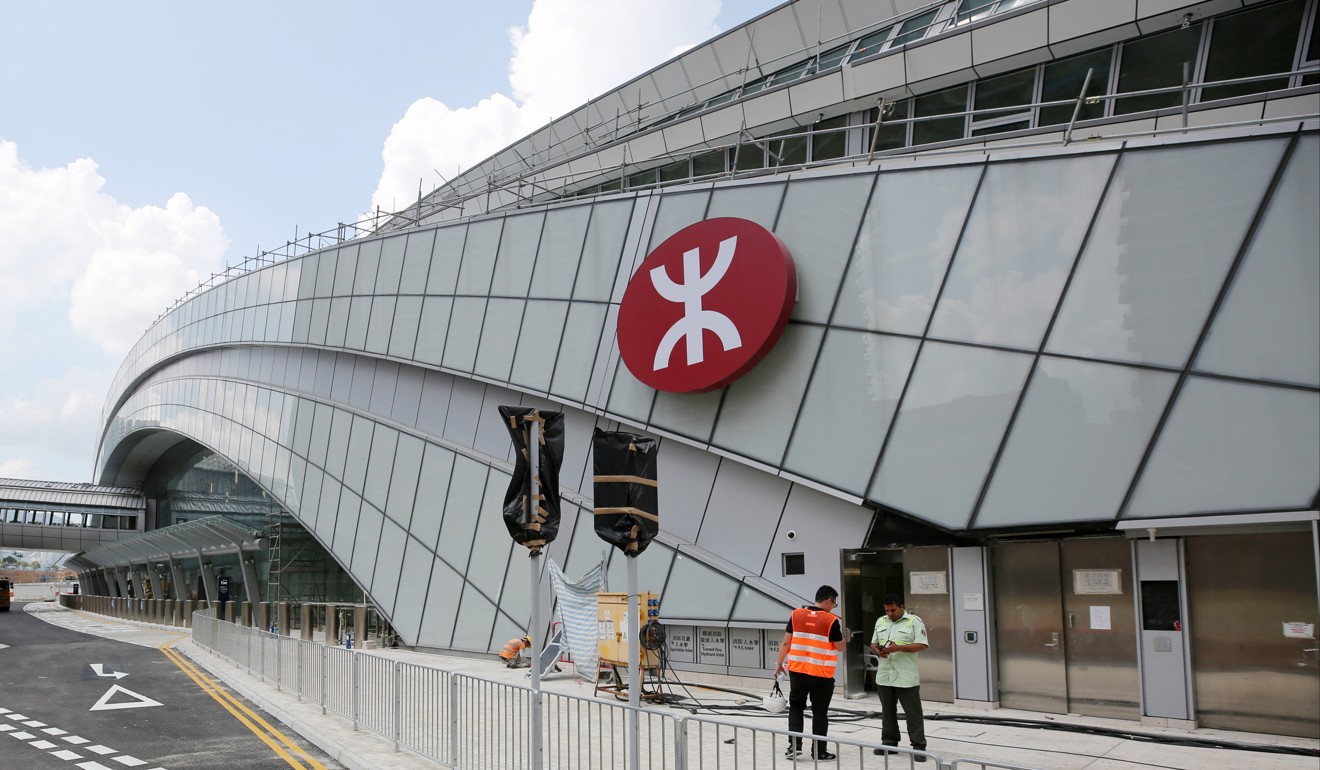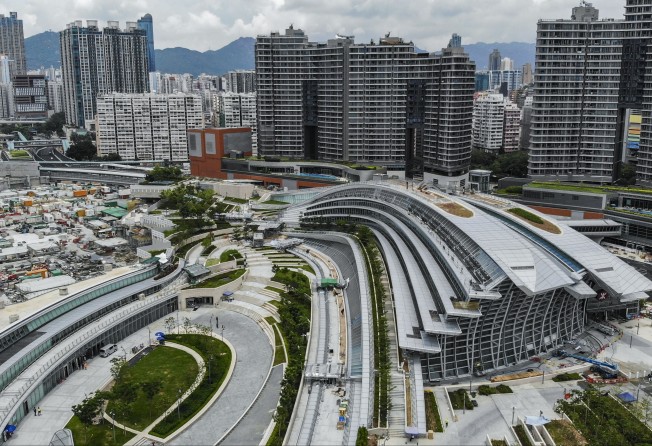
Mainland China will only be charged HK$1,000 per year for Hong Kong high-speed rail terminus
Deal at West Kowloon rail site will see Hong Kong pay similar amount for Shenzhen Bay facility, which will be slashed from current cost of about 8.1 million yuan

Hong Kong will charge mainland Chinese authorities only HK$1,000 (US$127) annually for using a 1.1 million sq ft port area at the high-speed rail link terminus in West Kowloon – one of the most expensive sites in the city.
The local administration on Thursday said the move would be matched by the Shenzhen municipal government slashing the annual rent Hong Kong pays for a 4.4 million sq ft port area at the Shenzhen Bay checkpoint in Shekou to 1,000 yuan (HK$1,150) from about 8.1 million yuan, starting next year.

Hong Kong authorities also announced the controversial “co-location” joint checkpoint arrangement – which would allow mainland officials to enforce their laws in the port area leased to them at the West Kowloon terminus – would be gazetted on Friday.
This would enable mainland officials to start work at the station on September 4. The 26km Hong Kong section of the HK$84.4 billion Guangzhou-Shenzhen-Hong Kong Express Rail Link is set to launch on September 23.
Opposition lawmaker Tanya Chan criticised the nominal rent for mainland authorities, saying it was upsetting and marked the latest threat to Hong Kong’s interests.
“First we lost control of jurisdiction on Hong Kong soil [on which the terminus sits], then the average daily passenger forecast was cut by 26 per cent, and now prime land is valued at HK$1,000,” she said. “It is not about parity. How can you compare the value of Shekou with West Kowloon?”
Chan said Hong Kong paid HK$4.2 billion in construction and development costs for the Shekou port, and about HK$1 billion in rental over the past decade.

Ricacorp Properties senior chief sales director Kenneth Woo said a home next to the West Kowloon terminus would cost HK$30,000 to HK$80,000 per square foot – one of the priciest rates in Hong Kong.
Rents at the International Commerce Centre, a landmark office tower near the terminus, are also among the city’s highest.
“Though there is a different nature of land use at the terminus, in terms of residential value of the site, it is considered the cream of the crop,” Woo said.
Under the co-location arrangement, mainland laws will apply to immigration counters on floor levels serving departures and arrivals, as well as on station platforms and in the compartments of moving trains in Hong Kong.
The legality of the arrangement has been challenged by opposition lawmakers and the Bar Association, with critics arguing that it goes against the city’s mini-constitution, the Basic Law.
The local government revealed in a leaflet that cases involving passengers in the mainland port area would be handled through conference calls involving both Hong Kong and mainland authorities.
Regardless of whether passengers in the zone called the local 999 emergency hotline or the mainland’s 112 version, the case would be first answered by Hong Kong police before being referred to a conference call.
Hong Kong personnel would also be authorised to provide help within the port area – for example, in the case of a fire – according to the leaflet.
A local police source said the conference call arrangement was also for authorities from both sides to convene and make a decision on how to proceed.
Democratic Party lawmaker James To Kun-sun criticised the arrangement, calling it “merely a cosmetic exercise and waste of police manpower”.
“If it’s regarded as part of the mainland and not Hong Kong, as authorities have claimed, I’m completely confused as to why there is a need for this call. Is it for translation services or to report cases of assault by mainland police?” To said.
Separately, while passengers will still be able to view online contents freely in the mainland port area since their phones could still receive Hong Kong mobile signals, the leaflet however states that any online criminal acts within the area would be covered by mainland laws.
Additional reporting by Christy Leung